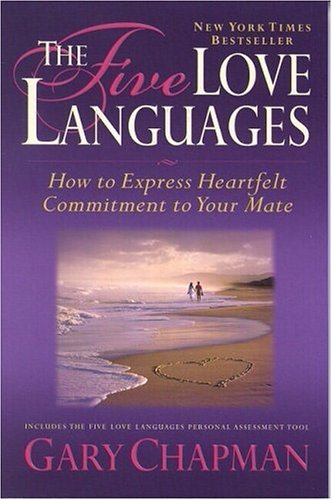Love Languages Part 3: Quality Time
 What happens if you are providing your loved one tons of compliments, encouraging words and other affirmations but they still don't feel loved? Then perhaps his or her love language is not Words of Affirmation! Everyone has their own preferred love language so you should be ready to alter your behaviors to match your loved one's favored language. "He tells me that he loves me, but if he really loved me then he would spend time with me." If your partner says something like this, then their language is most likely Quality Time. Spending time where you give your undivided attention to your spouse can be very powerful.
What happens if you are providing your loved one tons of compliments, encouraging words and other affirmations but they still don't feel loved? Then perhaps his or her love language is not Words of Affirmation! Everyone has their own preferred love language so you should be ready to alter your behaviors to match your loved one's favored language. "He tells me that he loves me, but if he really loved me then he would spend time with me." If your partner says something like this, then their language is most likely Quality Time. Spending time where you give your undivided attention to your spouse can be very powerful.
We will never have those twenty minutes again; we are giving our lives to each other. pg 60
Chapman gives an example of a couple where the wife wants Quality Time and the husband spends most of his time with his job. She often makes angry comments about his job because in her mind it is his job that is standing between their love. In reality, she doesn't actually hate his job, she just doesn't feel loved. He could spend the same amount of time on the job and she wouldn't have a problem with it at all if her love tank was full.
Conversation, including both listening and speaking, is one of the big ways to spend Quality Time with your loved ones. I personally suffer problems with this one: Chapman gives an example about a wife who comes up and shares her frustrations from the day. The husband responds with advice on how to fix it. When she comes back the next day and the next and hasn't implemented this advice and is still complaining about the same problems then the husband gets frustrated. She's not looking for advice though! The example husband figured it out... (emphasis mine)
Now I realize that she didn't want advice when she told me about her struggles at work. She wanted sympathy. She wanted me to listen, to give her attention, to let her know that I could understand the hurt, the stress, the pressure. She wanted to know that I loved her and that I was with her. pg 66
I am a huge offender in this very thing. As an engineer I tend to be a problem solver, so when I'm presented with an unsatisfactory situation I try to find a solution. However, that doesn't show my partner that I love her. She may begin to view it as condescending. Quality Time isn't one of my love languages and I continue to struggle with this one. I'm working on it though! When our partners ask for advice then we should give it freely and in a loving manner. Separate from listening to your partner is talking to your partner. Sure, you may be happy to listen to her for hours at a time but unless you also share your feelings she will begin to feel disconnected. After all, if you aren't willing to open up and share your feelings how can you be willing to open up and share your love? To someone who desires quality conversation those things are one in the same. If sharing your feelings or experiences is something that is difficult, Chapman offers several practical ways to help get yourself used to it.
Quality Activities might be the preferred type for your partner. Maybe your spouse likes to go to the symphony, but you don't. The important thing to remember is that you are showing love by spending time doing something they enjoy.
His purpose was clear. It was not to attend the symphony but to love Tracie and to speak her language loudly. pg 74
I love going to the theatre for plays or musicals, but for some reason I think "bleh" about the symphony. However, when Chapman described it above it suddenly felt like the easiest thing in the world. Going to the symphony? Meh. Loving you? Totally easy.
Long lasting love is something we chose. We make the choice to fulfill the love needs of our partner. Choosing to love starts the process. Please feel free to leave any comments at all. Disagreements, comments, insights, experiences are all welcome! This stuff benefits from discussion. For example, what kinds of activities does your partner enjoy? When was the last time the two of you went and did one of them?

